BAGHDAD - Security gains, along with an emerging focus on rebuilding Iraqi infrastructures, changes mission priorities for U.S. troops, as they move away from combat operations and on to what the military terms as civil capacity efforts.
Civil Military Operations Soldiers, working with 4th Battalion, 27th Field Artillery Regiment, 2nd Brigade Combat Team, 1st Armored Division and members of the embedded Provincial Reconstruction Team, visited the Lutifiyah Public Health Center April 8 to meet and assist an Iraqi mobile medical clinic.
Funded by the Government of Iraq, the mobile medical clinic is an experimental project in the Mahmudiyah and Lutifiyah Qadas, south of Baghdad. Over the past month, the clinic assisted local citizens to rely less on U.S. Soldiers for medical care, and more on Iraqi doctors. The goal is to have the GoI as the primary health care provider for the Iraqi people.
"The mobile medical clinic belongs to the Mahmudiyah Hospital. Task Force 4-27 got in contact with the director of the hospital and coordinated for the mobile clinic to go out and do this. They provide everything, and we help them use their assets," said Lt. Col. Anne Resty, of Clarinda, Iowa, the brigade's physical therapist.
The hospital then supplies the mobile medical clinic with staff; including a doctor, two nurses, a pharmacy technician, a laboratory technician, a vaccination technician and an emergency room technician. Along with the medical staff, the hospital also provides equipment and medications for the mobile clinic.
"We provide checkups, vaccinations, lab tests, and medications to the people. Today we mainly saw cases of anemia, hypertension, worms, and we saw one case of diabetes," said Adel, medical director and manager of the Lutifiyah Public Health Center.
The students of the Kinana School and residents from the nearby area received vaccinations, medications, and various other health services from the staff of the mobile medical clinic.
"Germs in the water being used are a big problem along with people getting sick from the contamination. It's very hard for people to get clean water, so we gave water treatment pills to the people who came today," said Adel.
In addition to being a good location for treating children, the school serves as a central location for people of the nearby area.
"This was the first time I've done this and I felt very good about serving the population outside the clinic," said Adel.
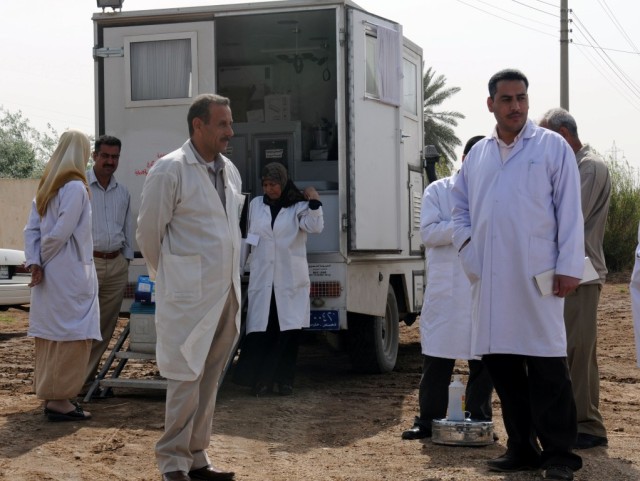
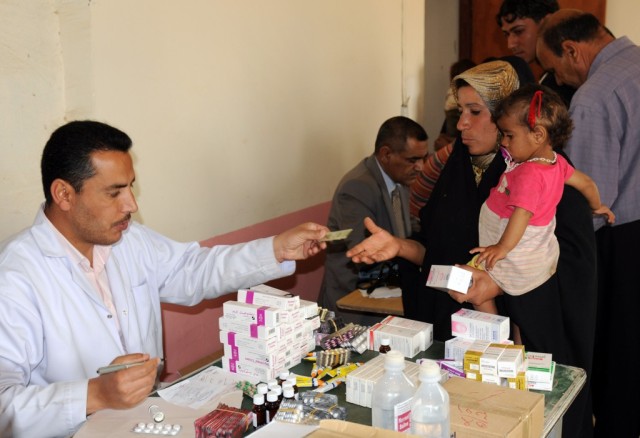
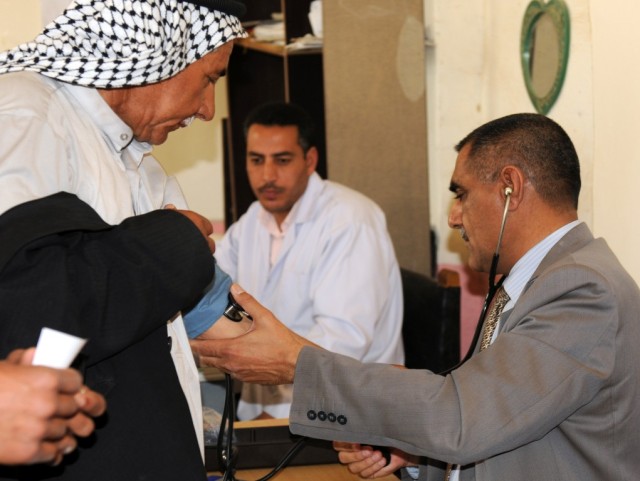

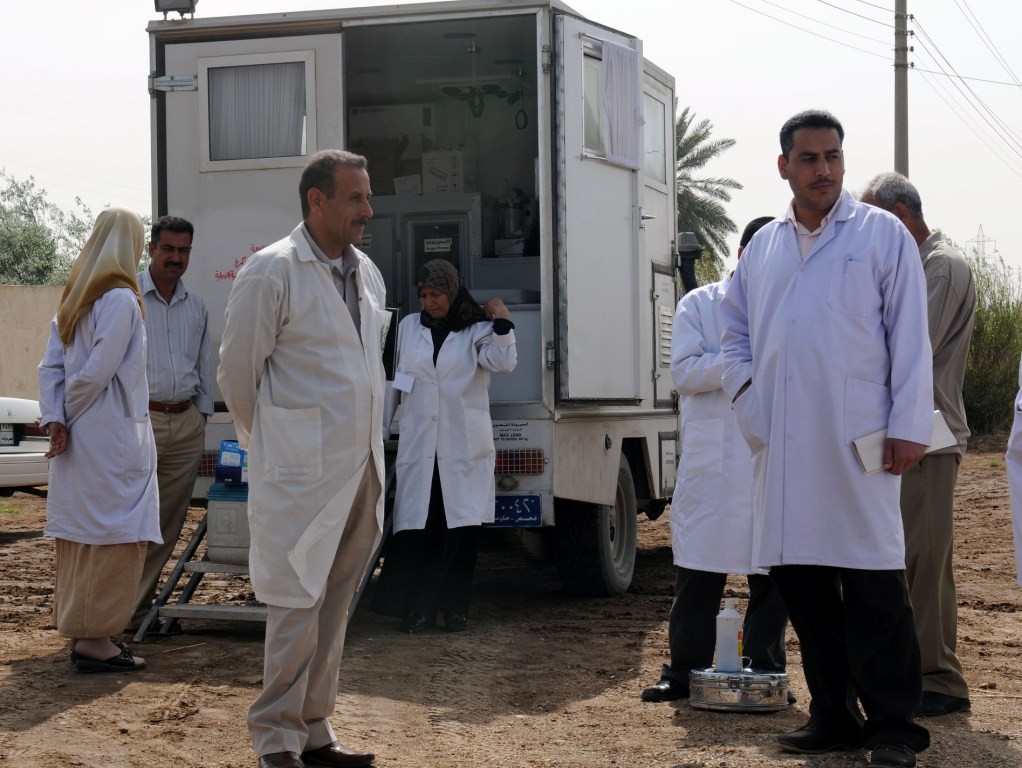
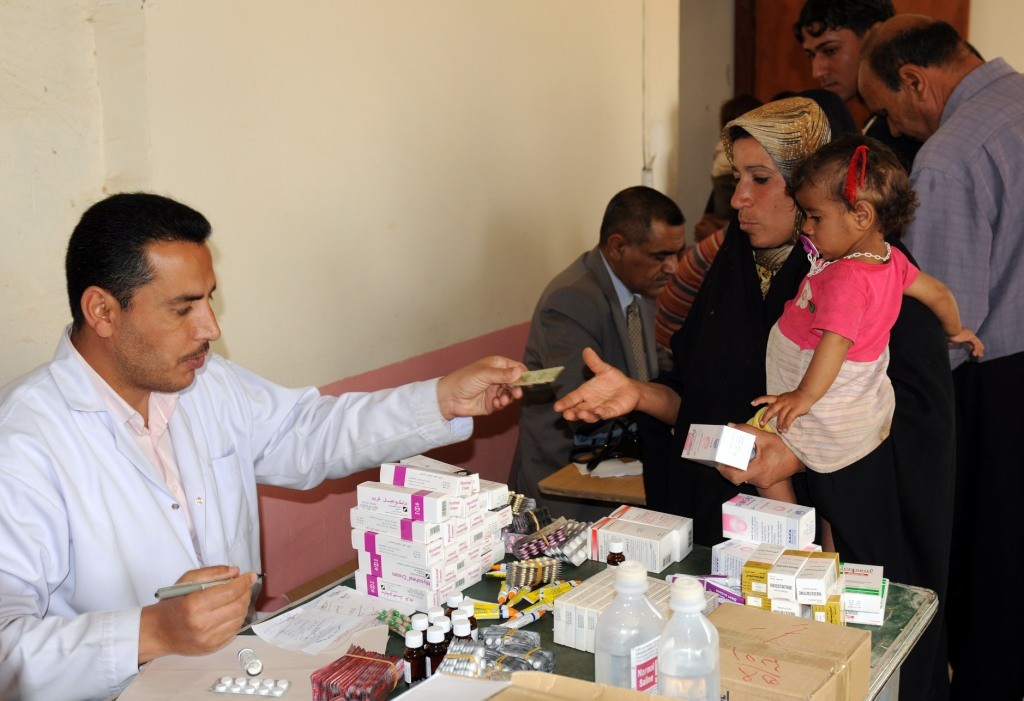
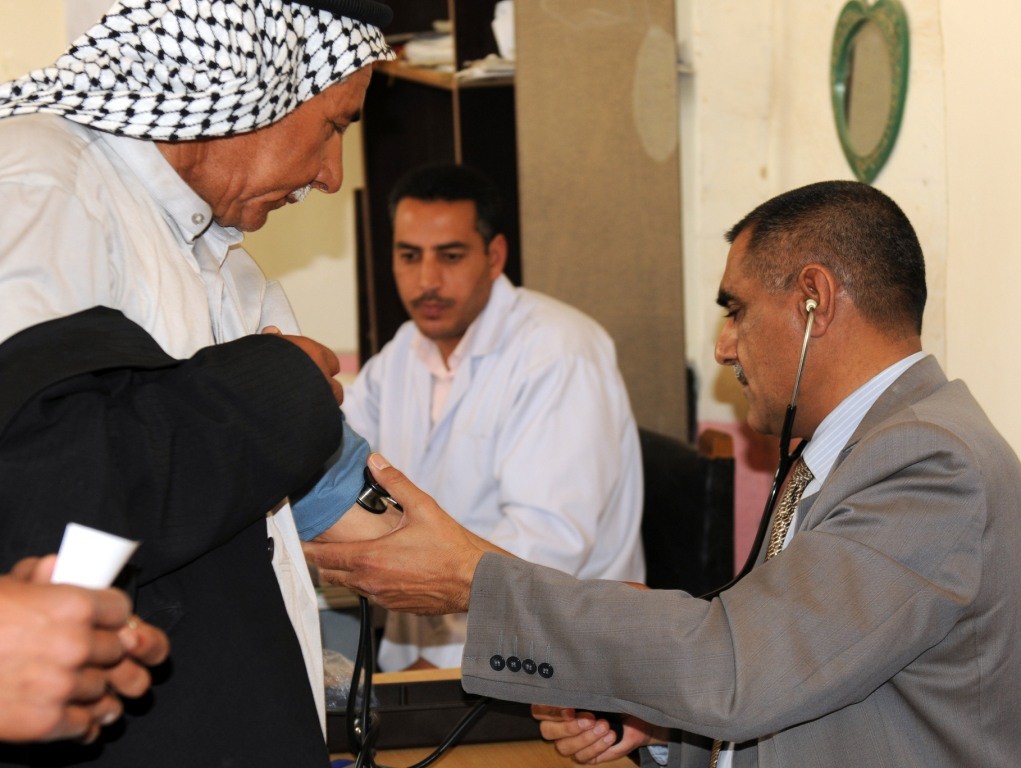
Social Sharing